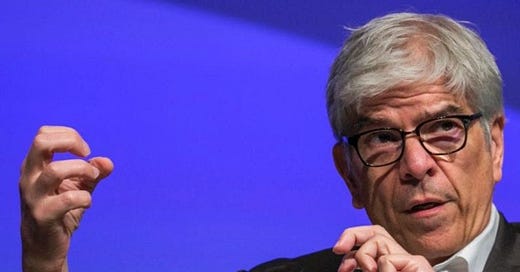Paul Romer: Mathiness in the Theory of Economic Growth: ’II. The Fork in Growth Theory: ’The traditional way to include a scale effect in a growth model was [the external increasing-returns framework] proposed by Marshall (1980). One writes the production of… each of a large number of firms in an industry as g(X)f(x) where the list x contains the inputs that the firm controls and X is the list of inputs for the entire industry… [external increasing-returns] spillover benefits from the term g(X)….
If we split f(x) = f(a,z)… [with] nonrival input a and rival inputs z, and write output at an individual firm as Af(a, z), a standard replication argument implies that f must be homogeneous of degree 1 in the rival goods z…. In a competitive equilibrium, for each firm, the value of output equals the compensation paid to the rival inputs z so there can be no nonrival inputs a that an individual firm can use whilst excluding other firms from using them. (For an elaboration of this argument, see Romer 1994b.) Hence, the nonrival inputs A must be 0% excludable and output must take the form Af(z). No firm or person can keep a nonrival idea secret. No firm or person will have any incentive to take advantage of the surplus noted above by encouraging the diffusion of an idea like mobile telephony throughout the world. Discovery and diffusion have to happen by accident.
I… switched to a model with monopolistic competition… with partially excludable nonrival ideas… [so it became] logically possible for a firm to have an incentive to discover new ideas (Romer 1990) or to encourage the international diffusion of an existing idea like mobile telephony (Romer 1994a). In this framework, excludability offers a much more precise way to think about spillovers. Non-rivalry, which is logically independent, is the defining characteristic of an idea and the source of the scale effects that are central to any plausible explanation of the broad sweep of human history (Jones and Romer 2010).
As part of the campaign of academic politics noted above, economists commitment to price-taking persevered with the assumption of 0% excludability required for external increasing returns, even when this forces mechanical models in which agents have no incentive either to discover ideas or encourage their diffusion. To defend this approach, they too resorted to mathiness…





